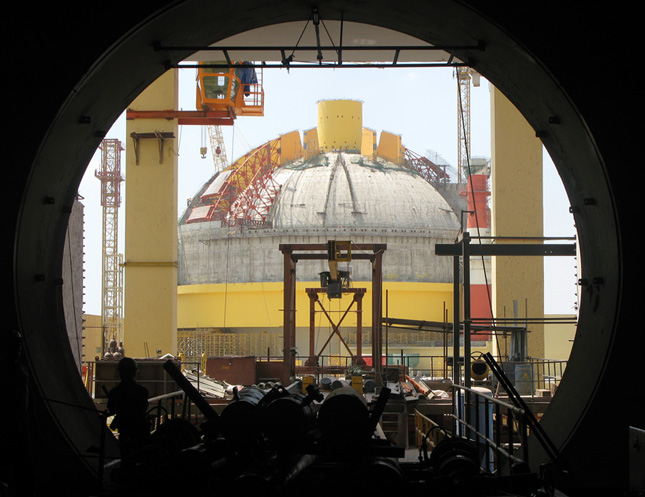-
Christine Parthemore, Center for Climate and Security
How Are Climate Plans Affecting Nuclear Security?
May 5, 2016 By Wilson Center Staff
Today, new nations are pursuing civilian but dual-use nuclear capabilities, the threat of non-state actors seeking nuclear materials may be growing, and countries continue to debate proper ways to enhance nuclear safety, security, and nonproliferation systems to keep up with the pace of change. At the same time, governments worldwide are having difficulty managing the effects of a rapidly changing climate, such as more damaging natural disasters and resource stress. The relationships among nuclear, climate, and security risks are growing more complex and interconnected, and these issues are likely to begin converging in new ways. By early 2016, it has become clear that the international community must take a fresh look at the ways in which they are likely to connect and potentially collide in the years ahead, and foster deeper dialogue on what should be done about it.
A Confluence of Concerns
While experts have long spoken of a “nuclear renaissance” in the global energy market, a confluence of recent events related to both nuclear energy and climate change are contributing to heightened concerns about nuclear security, and other security problems. The July 2015 Iran nuclear agreement raised to a truly global debate the decades-old tensions between allowing peaceful nuclear energy programs to advance and preventing the expansion of nuclear threats.
The following month, the International Atomic Energy Agency (IAEA) and Kazakhstan concluded a long-awaited agreement to move forward on an international fuel bank to hold and supply low-enriched uranium for nuclear reactors, with a goal of reducing the desires of countries to invest in their own fuel enrichment capabilities. The climate change negotiations concluded in Paris in December 2015 raised yet more questions about the world’s nuclear trajectory.
Continue reading at the Center for Climate and Security.
Sources: Arms Control Association, Center for Climate and Security.
Photo Credit: A fast-breeder test reactor in Kalpakkam, India, courtesy of Kristie Hansen/IAEA.
Topics: Asia, Bangladesh, China, climate change, COP-21, energy, environment, foreign policy, India, Iran, Jordan, Kazakhstan, Middle East, mitigation, nuclear, Pakistan, Russia, Saudi Arabia, security, South Asia, U.S.
 A Publication of the Stimson Center.
A Publication of the Stimson Center.



